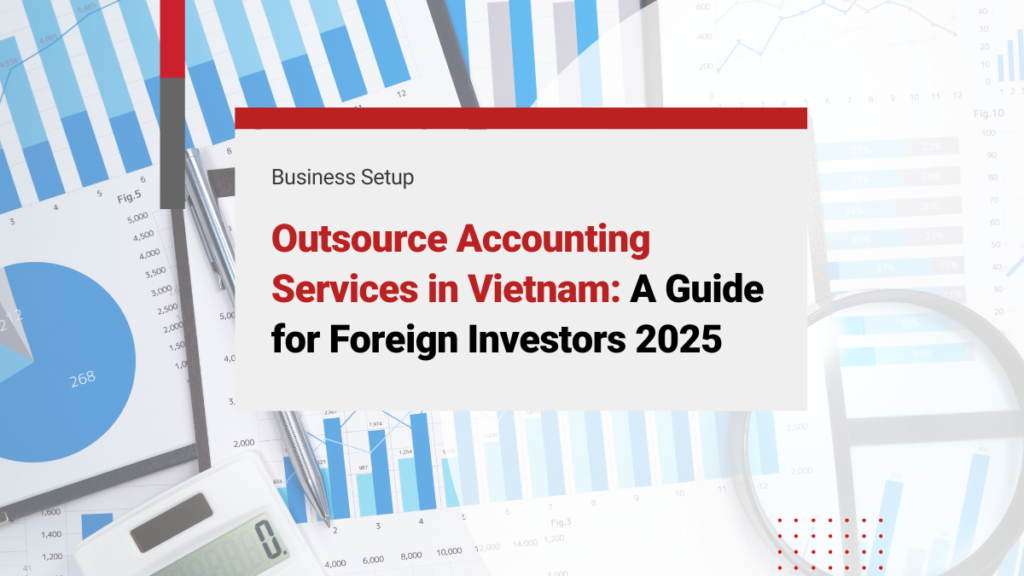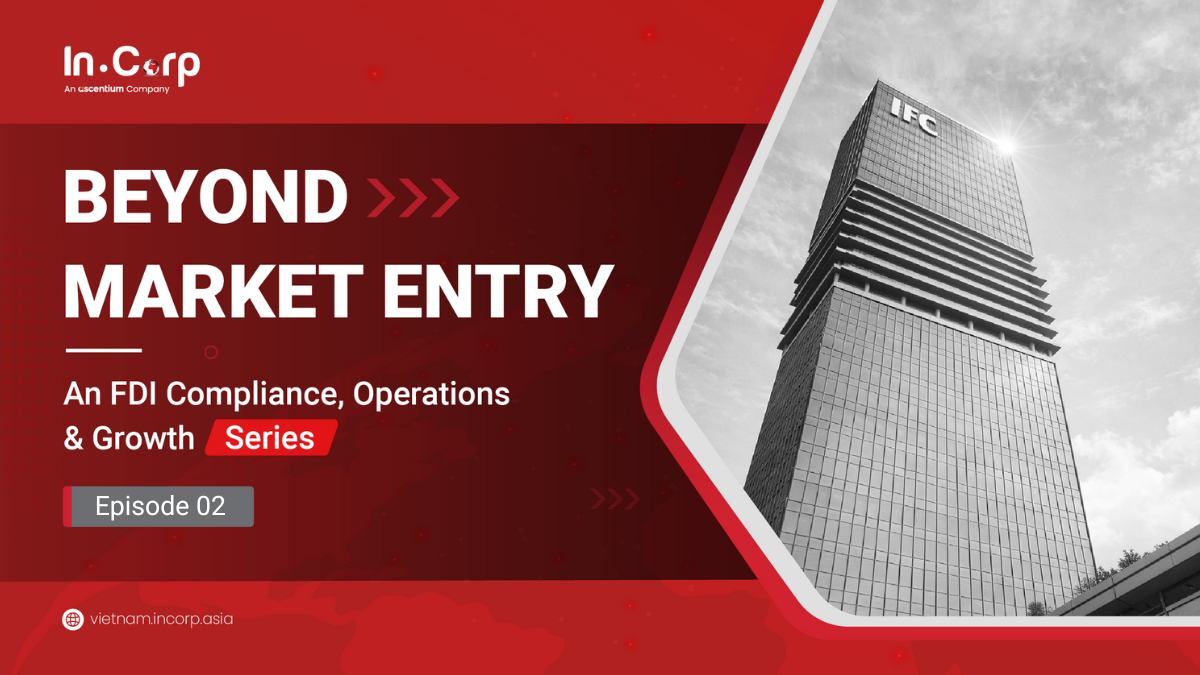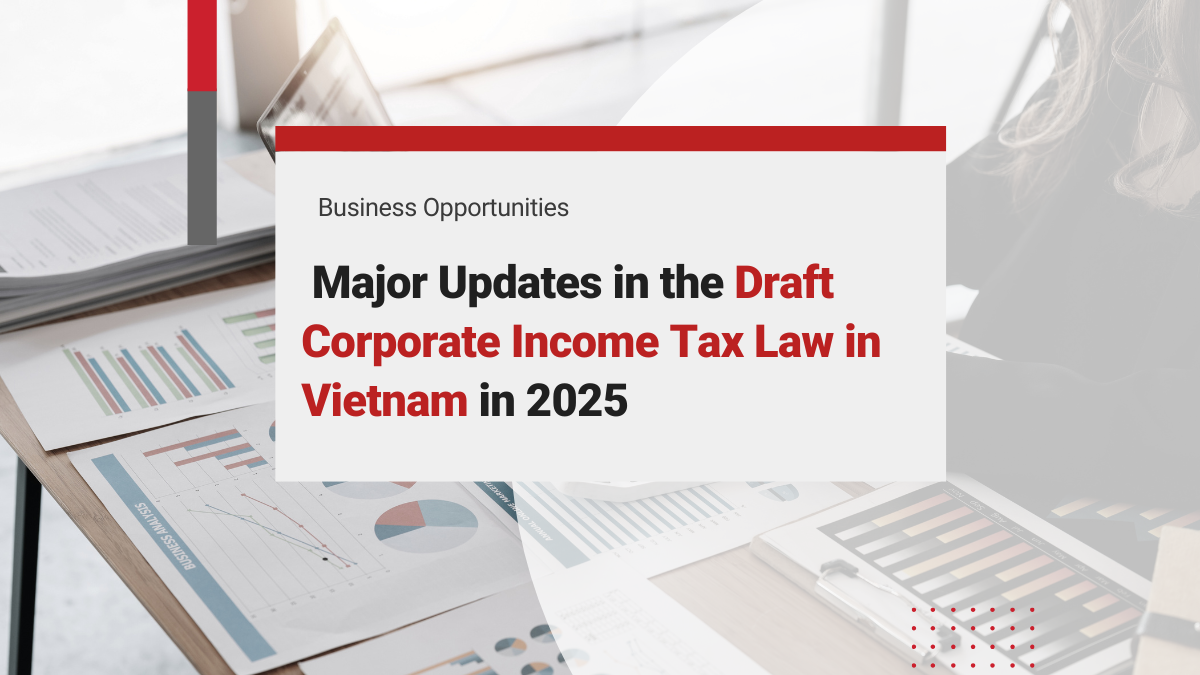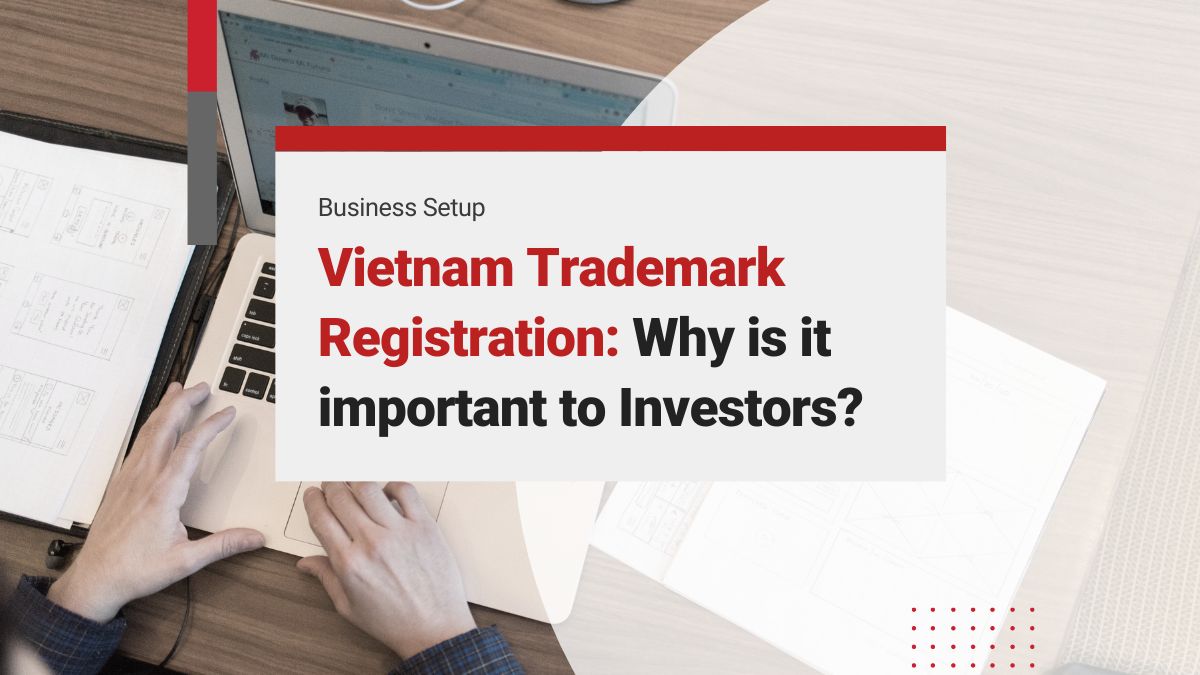Foreign direct investors (FDIs) in Vietnam often choose to outsource accounting services to manage complex financial tasks while focusing on core growth. Vietnam’s booming economy and favorable investment climate bring new tax rules and reporting requirements that can overwhelm in-house teams. By deciding to outsource accounting services in Vietnam, foreign companies gain immediate access to local expertise in bookkeeping, payroll, and tax compliance.
Outsourcing accounting services allows these businesses to tap into professional financial teams without building an in-house department. InCorp Vietnam notes that recruiting an internal accounting team can be “costly, time-consuming, and sometimes frustrating,” so outsourcing accounting services is a practical, cost-effective alternative. For example, an outsourced provider will handle invoicing, expense tracking, and statutory filings, ensuring you never miss a tax deadline or make reporting errors.
Even smaller foreign companies find advantages when they outsource accounting services. A typical accounting workspace (shown above) involves documents, digital reports, and financial data that an outsourcing firm can manage efficiently. When you outsource accounting services, you eliminate the need to purchase specialized software or train staff on Vietnamese regulations.
Instead, your chosen vendor handles daily bookkeeping, prepares Value-Added Tax (VAT) and Corporate Income Tax (CIT) returns, and produces accurate financial statements. This not only saves money but also reduces the risk of penalties: as InCorp Vietnam explains, “let us handle your bookkeeping, file and submit your taxes, and organize your financial statements,” so you can focus on business growth. In practice, this means FDIs can outsource accounting services to bilingual accountants who ensure reports are correct and submitted on time.
Discover how our Accounting & Bookkeeping Services help SMEs and FDIs stay compliant while reducing costs.
Regulatory and Compliance Considerations for FDIs
Vietnam’s accounting and tax system is unique, so companies that outsource accounting services must work with providers deeply familiar with compliance. All foreign-invested enterprises must follow Vietnamese Accounting Standards (VAS) and submit annual FDI & ISA reports, even if no new investment occurred. Starting in 2025, larger firms will also adopt International Financial Reporting Standards (IFRS), making it essential to outsource accounting services to advisors who understand both frameworks.
Vietnam’s tax authorities have also modernized reporting. Since mid-2022, all B2B transactions must use electronic invoicing. This means an accounting outsourcing vendor must set up e-invoices on the government portal and transmit data digitally. For example, Decree 123/2020 (amended by Decree 70/2025) requires all businesses to issue e-invoices in XML format and register them with the General Department of Taxation. A qualified outsourcing partner will already have this infrastructure in place. And because Vietnam’s accounting is closely tied to tax compliance, outsourcing accounting services to specialists reduces mistakes: one InCorp advisor notes that outsourcing “ensures compliant tax reporting” and helps clients “maintain compliance & never mess up financial statements.”.
Key regulations FDIs face include the 20% standard CIT rate (0–17% for incentives) and additional rates for certain industries. Outsourcing experts keep abreast of such details. Importantly, Vietnamese law requires foreign companies to appoint a Nominee Chief Accountant – a local-qualified accountant who officially represents the company to banks and tax authorities. A capable outsourcing vendor often provides this service as part of their package. In summary, any provider you select to outsource accounting services must have deep knowledge of VAT, CIT, PIT, e-invoicing rules, and the yearly FDI/ISA reporting cycle.
Key Criteria for Selecting an Outsourcing Vendor
When evaluating potential partners to outsource accounting services, consider the following factors:
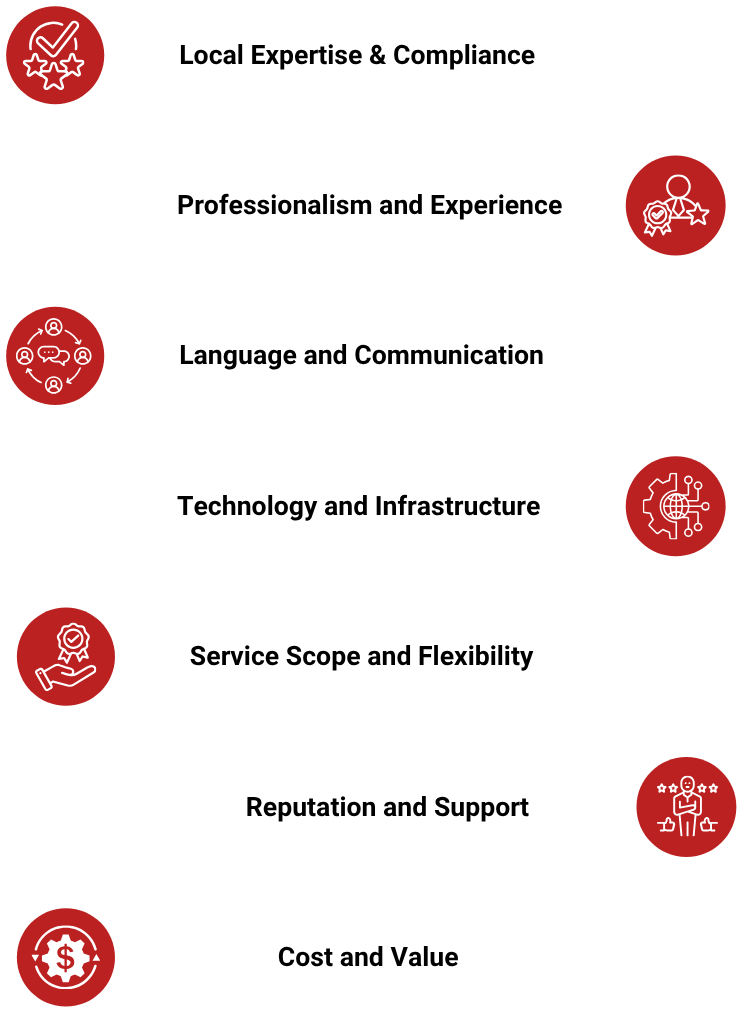
- Local Expertise & Compliance: When you outsource accounting services, make sure the vendor’s team understands Vietnamese law and FDI requirements. They should be familiar with VAS/IFRS differences, e-invoice systems, and corporate tax obligations. Verify that the firm can provide a qualified Nominee Chief Accountant to fulfill regulatory requirements.
- Professionalism and Experience: The provider’s professionalism is critical. FDIs should only outsource accounting services to firms firms with certified accountants (CPA or auditor licenses) and a proven track record with foreign businesses. Experienced staff mean faster, more accurate service. For example, vendors often highlight that their accounting teams have “many years of experience, especially tax for foreign companies”.
- Language and Communication: Since you will work closely with your outsourced team, bilingual (English–Vietnamese) capability is a must. Confirm the vendor’s accountants and consultants can communicate clearly in your language and offer timely updates. Good communication prevents misunderstandings, which are a common pitfall of outsourcing accounting services.
- Technology and Infrastructure: Ensure the vendor uses modern accounting software and secure data systems. They should have e-invoicing and e-tax portal integration already implemented. Ask if they can set up your company’s online tax accounts and handle digital signature management, as these are part of efficient outsourcing. A tech-savvy firm will streamline processes (e.g. automatic invoicing, cloud storage) and improve real-time visibility into your finances.
- Service Scope and Flexibility: Check if the provider offers full-service outsourcing or modular options. Some companies let you outsource accounting services on a project basis (e.g. annual audit preparation), while others offer Business Process Outsourcing (BPO) or even a Build-Operate-Transfer (BOT) model. Decide which model fits your needs. A full BPO will handle everything continuously; a BOT allows you to eventually take over the team.
- Reputation and Support: Look for vendors with solid client reviews and a physical presence in Vietnam. InCorp Vietnam, for instance, notes they have helped over 20,000 clients. Always ask for references or case studies of FDI clients. Also clarify support hours and how quickly the team will respond to queries. Trustworthy providers will be transparent about fees and contract terms.
- Cost and Value: While cost should not be the only factor, compare pricing carefully. Some vendors charge a flat monthly fee, others hourly. Ensure any quote covers all services (bookkeeping, reports, filings) and ask about hidden costs. Remember, even if a low price is tempting, a small mistake on taxes can cost far more in fines. It often pays to pay a bit more for reliability and expertise.
Check out InCorp Vietnam’s Accounting & Taxation Services
Vietnam’s Outsourcing Advantages
Vietnam competes with other Asian outsourcing hubs thanks to its skilled, cost-effective workforce. Its labor rates are often lower than in Malaysia or China, while engineers and accountants are well-educated. Vietnam’s growing IT infrastructure and time zone overlap with many markets (even having some business hours in common with Europe) make collaboration easier. For FDIs, outsourcing accounting services to Vietnam also means benefiting from a country with a stable political environment and improving transparency in business regulation. Although Vietnam’s Accounting Standards (VAS) can differ from IFRS (being more tax-focused), a local expert partner bridges that gap. In short, Vietnam offers competitive pricing and rising quality compared to other offshore options, while providing strong local knowledge.
Comparatively, each outsourcing destination has trade-offs. Unlike outsourcing purely overseas, having an on-the-ground team in Vietnam ensures familiarity with Vietnamese compliance (like mandatory e-invoicing) and easier communication with authorities. Still, Vietnam’s regulations have been aligning closer to global norms (e.g. moving toward IFRS). Many international CFOs find that outsourcing accounting services in Vietnam yields a good balance of control and cost savings: they can devote fewer resources to back-office tasks and more to strategic growth.
InCorp Vietnam’s Accounting Outsourcing Services
As a trusted partner, we at InCorp Vietnam offer a full suite of accounting outsourcing services tailored for FDIs. With over 30 years of experience and 1,500+ professionals across Asia-Pacific, we are a leading market-entry and corporate services firm in Vietnam. We emphasize transparent and reliable solutions for overseas clients, ensuring they can focus on growth while we manage their numbers.
Our outsourcing package covers everything from bookkeeping to tax filing. With our bilingual team of accountants who “understand you,” we bridge language gaps and cultural nuances. We also provide the required Nominee Chief Accountant service as part of our package.
We take care of the technical compliance aspects as well. For instance, we handle e-invoice setup and tax portal registration, aligning with Vietnam’s digital invoicing mandates. Our team ensures accurate monthly and annual reports under VAS, and we assist with voluntary IFRS conversion if needed. By outsourcing accounting services to us, clients gain access to rigorous compliance monitoring. We set up the online Government portal, manage e-tax declarations, and keep clients regularly updated on their VAT and CIT liabilities.
Overall, our advantages include deep local knowledge, a strong track record (over 20,000 clients served), and one-stop solutions for FDIs. By choosing InCorp Vietnam, foreign companies can confidently outsource their accounting services, knowing that our experienced team is safeguarding their books. This allows managers to focus on market strategy, while we ensure full compliance and financial clarity.
Conclusion
To outsource accounting services in Vietnam is a strategic choice for foreign investors aiming to optimize costs and compliance. By delegating bookkeeping, payroll, and tax reporting to a qualified Vietnamese provider, FDIs can ensure accuracy and meet all regulatory deadlines. When selecting a vendor, FDIs should evaluate expertise in local tax law, professionalism of staff, language capabilities, and use of technology.
The right partner will not only handle day-to-day accounting but also guide you through Vietnam’s specific requirements (e-invoices, FDI reports, IFRS transition, etc.). InCorp Vietnam exemplifies a full-service option: they have the resources and know-how to let investors outsource accounting services smoothly. Ultimately, outsourcing accounting services frees FDIs to focus on growing their business in Vietnam, while ensuring robust financial control.
Learn the Right Setup for Business
Expansion in the Vietnam
Frequently Asked Questions
Why should foreign companies outsource accounting services in Vietnam?
- Outsourcing saves costs, avoids recruitment challenges, and reduces compliance risks. FDIs gain access to bilingual accountants who understand VAT, CIT, PIT, e-invoicing, and FDI/ISA reporting.
Is it mandatory to appoint a Nominee Chief Accountant when I outsource accounting services?
- Yes. Vietnamese law requires all foreign-owned companies to appoint a licensed Chief Accountant. Outsourcing providers like InCorp Vietnam include Nominee Chief Accountant services as part of our package.
How do outsourcing providers ensure compliance with VAS and IFRS?
- Qualified firms align all reports with Vietnamese Accounting Standards (VAS) and also support voluntary IFRS conversion. This ensures accurate bookkeeping and transparent financial statements for both local authorities and global stakeholders.
What services are usually included when I outsource accounting services in Vietnam?
- Typical outsourcing covers bookkeeping, payroll, VAT/CIT/PIT filings, financial statements, e-invoice setup, tax portal registration, and annual FDI/ISA reports. Some providers also offer scalable models like BPO or BOT for flexibility.
